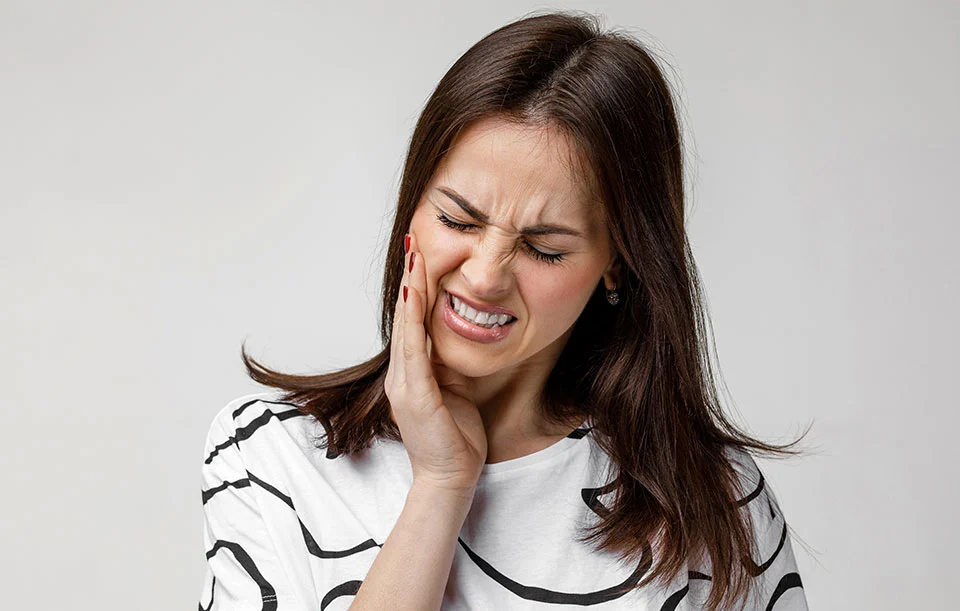Dealing with a dental emergency in Cameron Park, CA? Welcome to Cameron Park Family Dentistry’s comprehensive guide! No need to stress – we’re here to help you navigate with confidence and a smile. In this blog, we’ll cover common dental emergencies, home care tips, and when to seek emergency dental care. Ready to dive in and empower you with the knowledge to handle any dental curveball life throws your way?
What to Do If Your Tooth Gets Knocked Out: A Step-by-Step Guide
Experiencing a knocked-out tooth can be alarming, but quick action can save your smile. Here’s what to do:
- Find the tooth and pick it up by the crown (the visible part), not the root.
- If dirty, gently rinse it with milk or water, but don’t scrub or remove attached tissue.
- Try to reinsert the tooth into its socket, gently biting on gauze to hold it in place.
- If reinsertion isn’t possible, place the tooth in milk, saliva, or a tooth-preservation solution.
- Seek emergency dental care within 30 minutes for the best chance of saving the tooth.
Remember, time is crucial when dealing with a knocked-out tooth. This situation always warrants immediate attention from an emergency dentist in Cameron Park, CA.
How to Manage a Severe Toothache at Home (and When to See a Dentist)
A throbbing toothache can disrupt your entire day. Our Cameron Park, CA, dentist recommends these at-home remedies for relief:
- Rinse with warm salt water to reduce inflammation.
- Take over-the-counter pain relievers like ibuprofen or acetaminophen.
- Apply a cold compress to your cheek to numb the area.
- Use clove oil on the affected tooth for its natural numbing properties.
While these methods can temporarily relieve persistent or severe tooth pain, they often signal a more serious issue. Contact our emergency dental services if your toothache:
- Lasts longer than 1-2 days
- Is accompanied by fever, swelling, or severe pain
- Makes it difficult to eat or sleep
- Results from a known injury
Don’t ignore ongoing pain – it could indicate an infection or other serious dental problem requiring urgent attention.
Broken Tooth? Here’s Your Emergency Action Plan
Dental trauma can result in various types of tooth breaks, each requiring different care:
- Minor chips: Rinse your mouth with warm water and apply dental wax to cover sharp edges. Schedule a non-emergency appointment for repair.
- Larger breaks or cracks: Rinse your mouth, apply a cold compress to reduce swelling, and cover the broken area with temporary dental cement if available. Call for an emergency appointment.
- Severe breaks with exposed nerve (pulp): This is a dental emergency! Gently rinse your mouth, apply a cold compress, and seek immediate professional care.
Remember, even small breaks can lead to bigger problems if left untreated. Professional evaluation and repair are crucial for protecting your oral health.
The Ultimate Guide to Dental Abscesses: Symptoms, Causes, and Treatment
A dental abscess is a serious infection requiring immediate attention. Watch for these symptoms:
- Severe, persistent, throbbing toothache
- Sensitivity to hot and cold temperatures
- Fever
- Swelling in your face or cheek
- Tender, swollen lymph nodes under your jaw or in your neck
- A sudden rush of foul-tasting fluid and pain relief if the abscess ruptures
Causes often include untreated tooth decay, gum disease, or a cracked tooth. An abscess won’t resolve on its own and can lead to severe complications if left untreated. Emergency dental treatment typically involves draining the abscess, addressing the underlying cause, and prescribing antibiotics to clear the infection.
Everything You Need to Know About a Lost Filling or Crown
Losing a filling or crown can be uncomfortable and leave your tooth vulnerable. Here’s what to do:
For a lost filling:
- Rinse the area with warm salt water.
- Temporarily fill the space with dental cement from a drugstore.
- Avoid chewing on that side of your mouth.
For a lost crown:
- Clean the crown and try to reattach it with dental cement or toothpaste.
- If reattachment isn’t possible, keep the crown safe and bring it to your appointment.
- Protect the exposed tooth by covering it with dental cement.
While these situations aren’t always immediate emergencies, prompt treatment is essential to prevent further damage. Schedule an appointment as soon as possible.
To prevent future issues:
- Avoid chewing hard foods or ice with dental work.
- Maintain excellent oral hygiene.
- Attend regular dental check-ups to catch potential problems early.
Dental Trauma in Children: A Parent’s Guide to Emergency Care
Kids are prone to dental accidents, but knowing how to respond can make all the difference:
- Knocked-out baby tooth: Unlike adult teeth, don’t attempt to reinsert it. Save the tooth and contact us for guidance.
- Knocked-out permanent tooth: Follow the steps outlined earlier for adults, seeking care within 30 minutes if possible.
- Cracked or chipped tooth: Rinse the mouth with warm water, apply a cold compress to reduce swelling, and call us to assess the damage.
Prevention is key. Encourage the use of mouthguards during sports, childproof your home to reduce fall risks, and teach good oral hygiene habits early. Remember, children’s developing mouths require special care. Always seek professional advice after any dental injury.
Your Dental Emergency Ally
Cameron Park Family Dentistry is committed to providing expert emergency dental care when you need it most. While this guide can help you manage dental emergencies, professional care is often necessary for the best outcomes. Don’t hesitate to contact our emergency dental services if you’re unsure about the severity of your situation.
Take Action for Your Smile’s Health Today!
Be prepared for dental emergencies before they happen. Remember, quick action and professional care are key to protecting your smile in emergencies. Ready to ensure your family’s dental health is in excellent shape? Schedule a check-up with Cameron Park Family Dentistry today.

